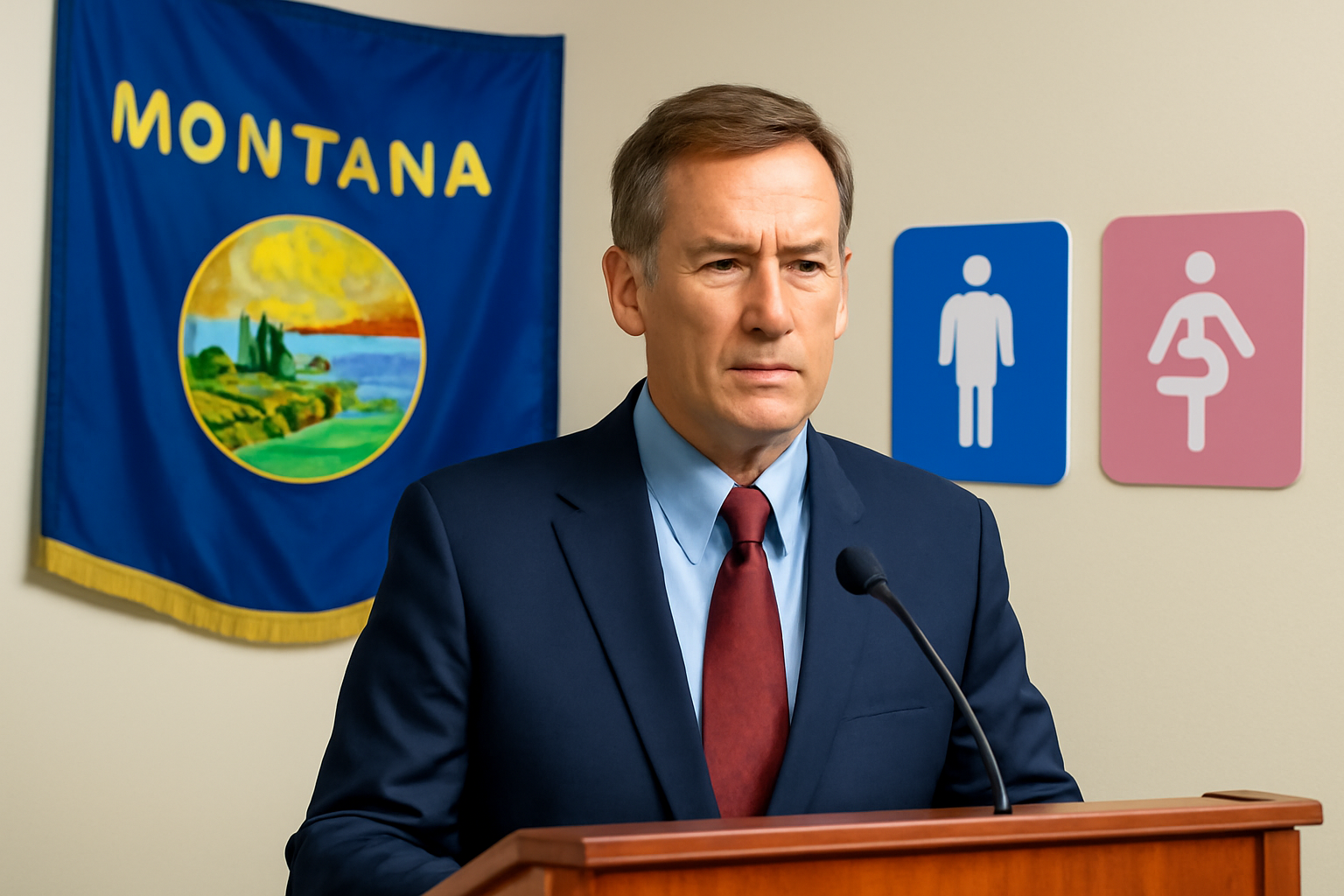
Montana is currently at the center of a significant legislative debate following the introduction of a new bill aimed at regulating access to public bathrooms based on gender identity. This proposal has sparked intense discussions both within the state and on a national level, as it touches upon crucial issues of civil rights, privacy, and public safety.
The proposed legislation seeks to mandate that individuals use public bathrooms that correspond to the sex they were assigned at birth. This means that transgender individuals would be required to use facilities that may not align with their gender identity. Proponents of the bill argue that such measures are necessary to ensure the safety and privacy of all individuals using public facilities. They claim that allowing people to choose bathrooms based on their gender identity could lead to potential misuse and risks in these spaces.
However, critics of the bill have expressed deep concern over the implications it holds for the transgender community. Many argue that the legislation is discriminatory and infringes on the rights of transgender individuals to live authentically and safely. They point out that there is little evidence to support claims that allowing transgender people to use bathrooms that match their gender identity poses any greater risk to others. Instead, they suggest that this bill could increase the harassment and discrimination faced by transgender people in public spaces.
Community Reactions
Reactions to the proposed bill have been varied and vocal. LGBTQ+ advocacy groups in Montana have strongly condemned the legislation, organizing rallies and campaigns to raise awareness about the potential harm it could cause. They argue that such policies not only stigmatize transgender people but also create an environment of fear and exclusion.
Supporters of the bill, on the other hand, maintain that it is a necessary step to protect privacy and safety. They underscore their belief that public facilities should be clearly divided along traditional lines of male and female, as determined by biological sex. This perspective, however, is increasingly challenged by studies and reports that highlight the lack of evidence supporting these safety concerns.
Legal and Social Implications
If passed, the legislation could set a precedent for other states considering similar measures. The debate in Montana is emblematic of a larger national discourse on the rights of transgender individuals and the extent to which laws should accommodate or restrict these rights. Legal experts suggest that such bills, if enacted, could face significant challenges in court, as they may conflict with federal civil rights protections.
Socially, the bill has energized both opponents and supporters, creating a platform for discussions around gender identity, equality, and the role of government in personal matters. For many in the transgender community, the bill represents a rollback of hard-won rights and recognition. Advocates emphasize the need for greater education and understanding around issues of gender identity and expression.
The Path Forward
As the legislative process unfolds, all eyes are on Montana to see how lawmakers will navigate this contentious issue. Public hearings and debates are expected to continue, with input from various stakeholders, including legal experts, advocacy organizations, and concerned citizens. The outcome will likely influence similar discussions across the United States.
For now, the focus remains on advocacy and raising awareness. Transgender rights groups are mobilizing resources and support to oppose the bill, while also working to provide education and foster dialogue among the broader public. Their efforts aim to ensure that the voices of transgender individuals are heard and considered in the legislative process.
The situation in Montana serves as a reminder of the ongoing struggle for equality and recognition faced by transgender people. It highlights the importance of continued advocacy and dialogue to ensure that all individuals can live with dignity and respect, free from discrimination and fear.
Related Posts
Triumphant Trans Woman Wins Legal Battle and Inspires Others to Stand Up for Their Rights
Breaking new ground: a landmark victory in transgender rights After battling in courtrooms and enduring endless challenges, Diana Portillo, a transgender woman, has secured a monumental victory in her decade-long fight against workplace discrimination. The result? Nearly $1 million awarded in a historic settlement. But this isn't just a win on paper—it represents a powerful precedent in combati [...]
Pride Month in Latin America: Protests and Demands for Equality
**Celebrating Pride and advocating LGBTQ+ rights in Latin America** Pride Month in Latin America was a lively mix where celebration met activism. Communities united, not just throwing a party but making a stand—demanding equality and pushing governments toward better protection and rights recognition. Throughout Latin America, pride events erupted in marches and cultural displays, each with a c [...]
Transgender Erasure Actions Implemented by National Park Service
```html Trump administration's impact on national park service and transgender recognition The Trump administration made notable moves in undermining transgender representation, which included directing agencies like National Park Service not include "T" and "Q" when they refered “LGBTQ” in any official communication. This move seems part a broader plan by this administration aimed at reducin [...]